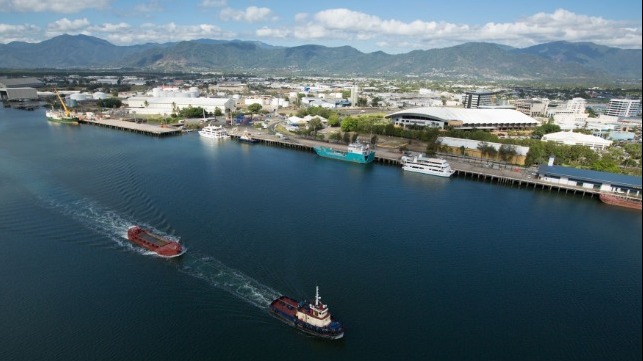Australia Bans Fifth Ship in 2020 From Ports for Crew Welfare Issues

Australia is continuing its inspection and enforcement actions against ships sailing in its waters with the penalty of banning ships from its ports as an incentive to ensure fair treatment of seafarers. In 2020, the Australian Maritime Safety Authority (AMSA) has banned five vessels from its waters bring to 20 the number of commercial vessels banned from Australian ports for anything ranging from three to 18 months over the past six years.
In the most recent incident, AMSA announced today that it is banning a Panama-flagged bulk carrier for 12 months due to, “deliberately underpaying its crew.” AMSA General Manager Operations Allan Schwartz was quoted as saying, “This is the fourth ship that we have banned this year for serious and shameful breaches of the Maritime Labour Convention.”
AMSA reported that its investigators aboard the AC Sesoda in Queensland, Australia on September 10, 2020, to investigate allegations about underpayment. During the investigation, AMSA reported that evidence was collected which confirmed that a number of crew had only been paid half of their wages since October 2019. AMSA reported that it believed the crew was due more than A$118,000 (approximately US $86,000).
“The ship’s master and operator attempted to conceal the underpayment from inspectors by only producing a fabricated wage record which indicated that these seafarers had been paid in full,” AMSA said in its statement. “A second wage record showed that these seafarers had in fact been deliberately underpaid, while some senior members of the crew had been paid above their agreed rates.”
The ship was reportedly detained in Australia for nearly a week, until AMSA received evidence that the crew had been paid the outstanding wages and that a rectification action plan had been developed to ensure the same failure did not reoccur. The vessel was released from detention and issued a 12-month ban prohibiting it from entering an Australian port.
“It’s hard to believe that some operators still think that it is acceptable to underpay their seafarers. AMSA will not tolerate such deliberate and deceitful mistreatment of seafarers on ships that sail in Australian waters,” said Schwartz. “AMSA has made its position abundantly clear that we have a zero tolerance for the underpayment of crew.”
During the past few months, AMSA reported three other instances where ships arriving in Australia waters were either not properly paying their crew or had other welfare violations. In total, they report recovering more than A$290,000 (approximately US$212,000).

that matters most
Get the latest maritime news delivered to your inbox daily.
“We are sending a simple message to operators,” said Schwartz. “Pay your crew properly, treat them respectfully, and comply with the requirements of the Maritime Labour Convention or you will not be welcome in Australia.”
He speculates that the financial and reputational impact of being banned from Australia far exceeds the cost of paying seafarers the money that they have rightfully earned.
